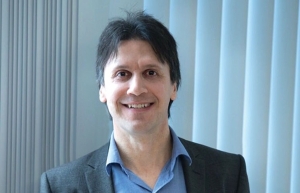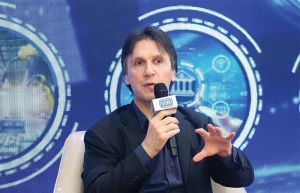5G to accelerate digitalisation in Vietnam
Mobile technology is the most democratic and inclusive technology ever, with more than 8.5 billion subscriptions on the same standard, giving our industry a truly global scale. Robust digital infrastructure is a prerequisite for a digital society, but with data traffic increasing rapidly – and expected to almost quadruple by 2028 - it is essential to build even more network infrastructure. Rapid build-out of 5G is critical to manage costs and deliver the best customer experience.
 |
| Denis Brunetti, President in Vietnam, Myanmar, Cambodia, and Laos, Ericsson |
5G leverages new spectrum assets to deliver capacity with a much lower cost-per-gigabyte, while reducing the power consumed per delivered gigabyte. Upgrading legacy 4G sites to 5G could achieve increases of up to 10 times in capacity and also reduce energy consumption by more than 30 per cent.
The convergence of the internet, mobility, cloud, and powerful 5G networks is also driving rapid acceleration in digital transformation. Mobile broadband is the initial 5G use case that enables service providers to offer a differentiated customer experience for both consumer and enterprise users.
FWA is currently the largest 5G use case after mobile broadband. In terms of uptake, around half of Ericsson’s 5G live networks offer commercial 5G FWA. For example, in the US, the latest growth in broadband subscribers almost exclusively came from FWA, which now boasts some 4 million subscribers.
Mobile cloud gaming is gaining momentum and interest in some markets, while we see private networks moving from trials to starting commercial use of 5G. It will also deliver the capacity and performance needed for indoor and venues as intense demand for data increases. Enterprises are increasingly looking to invest in modernising their legacy systems with new technologies and applications, which will also drive innovations, operational efficiencies, and growth.
In 5G, performance is a premium that consumers and enterprises are willing to pay for. And with advanced features, such as speed, time-bound latency, network slicing, and authentication, new differentiated performance services can be created which require a new monetisation model.
This is where network APIs and a global network platform come into play. Network APIs put the capabilities of the network at the fingertips of the global developer community, who in turn will create new and innovative use cases. For example, authentication without passwords or low-latency performance for superior extended reality experiences.
At Ericsson, with our acquisition of Vonage in 2022, we now have a leading CPaaS (Communications Platform as a Service) platform with a powerful ecosystem community of over one million application developers, and we want to partner with service providers in Vietnam and other parts of the globe towards building this ecosystem together.
At the recent Mobile World Congress in Barcelona, together with Vodafone, Orange, and Telefonica, we showcased how advanced 5G functionality can easily be made available to developers from Blacknut, Zoom, and Vonage via a quality-of-service API. This was up and running live over all three operators’ networks during the entire show. This is the start of a paradigm shift that will put network functionality at the centre of digital transformation.
At Ericsson, our investments in technology leadership have allowed us to build a powerful portfolio in mobile networks, which is the foundation of our success. Today, more than 200 5G networks are in commercial service, and Ericsson is leading the market by powering more than 140 networks across five continents.
Ericsson invests approximately $4-5 billion or 17 per cent of its global revenues on research and development (R&D) every year. Recently, Ericsson entered into a five-year partnership with the government of Canada for R&D in the areas of advanced 5G/6G, AI, cloud RAN, and core network technologies.
Our strengthened portfolio and global experiences can accelerate the 5G journey of our customers in Vietnam and support Vietnam’s digitalisation ambition. A key component of Vietnam’s development is the digital economy, which will contribute 20 per cent of GDP by 2025 and 30 per cent by 2030. 5G will provide the critical infrastructure that will drive that digital transformation in Vietnam and enable the country to achieve its Industry 4.0 vision.
Our recent 5G Business Potential study indicated $1.5 billion potential revenues for communications service providers in Vietnam, based on 5G digitalisation across manufacturing, energy and utilities, and agriculture. Ericsson’s 5G platform is a truly resilient system, with security and privacy built-in from the start.
The growth of the 5G ecosystem will go a long way towards accelerating the 5G and Industry 4.0 adoption by enterprises in Vietnam. Industry, academic, and government collaboration will serve to create innovative use cases that are relevant for Vietnam. And we are committed to driving the success of Industry 4.0 and the 5G ecosystem in Vietnam.
 | 5G to accelerate Vietnam’s digital transformation Vietnam is yet to commercialise 5G despite detailed preparations and the expectations of the business community. Denis Brunetti, president of Ericsson in Vietnam and Myanmar, talked to VIR’s Bich Thuy about the crucial factors that will make 5G happen. |
 | 5G commercialisation – a must to drive the digital vision of Vietnam Vietnam wants to commercialise 5G, thus enabling the country to achieve its digital vision. Denis Brunetti, president of Ericsson in Vietnam, Myanmar, Cambodia and Laos, talked to VIR’s Minh Anh about the key factors in this journey and how the company can support these efforts. |
What the stars mean:
★ Poor ★ ★ Promising ★★★ Good ★★★★ Very good ★★★★★ Exceptional
Related Contents
Latest News
More News
- Citi economists project robust Vietnam economic growth in 2026 (February 14, 2026 | 18:00)
- Sustaining high growth must be balanced in stable manner (February 14, 2026 | 09:00)
- From 5G to 6G: how AI is shaping Vietnam’s path to digital leadership (February 13, 2026 | 10:59)
- Cooperation must align with Vietnam’s long-term ambitions (February 13, 2026 | 09:00)
- Need-to-know aspects ahead of AI law (February 13, 2026 | 08:00)
- Legalities to early operations for Vietnam’s IFC (February 11, 2026 | 12:17)
- Foreign-language trademarks gain traction in Vietnam (February 06, 2026 | 09:26)
- Offshore structuring and the Singapore holding route (February 02, 2026 | 10:39)
- Vietnam enters new development era: Russian scholar (January 25, 2026 | 10:08)
- 14th National Party Congress marks new era, expands Vietnam’s global role: Australian scholar (January 25, 2026 | 09:54)

 Tag:
Tag:



















 Mobile Version
Mobile Version